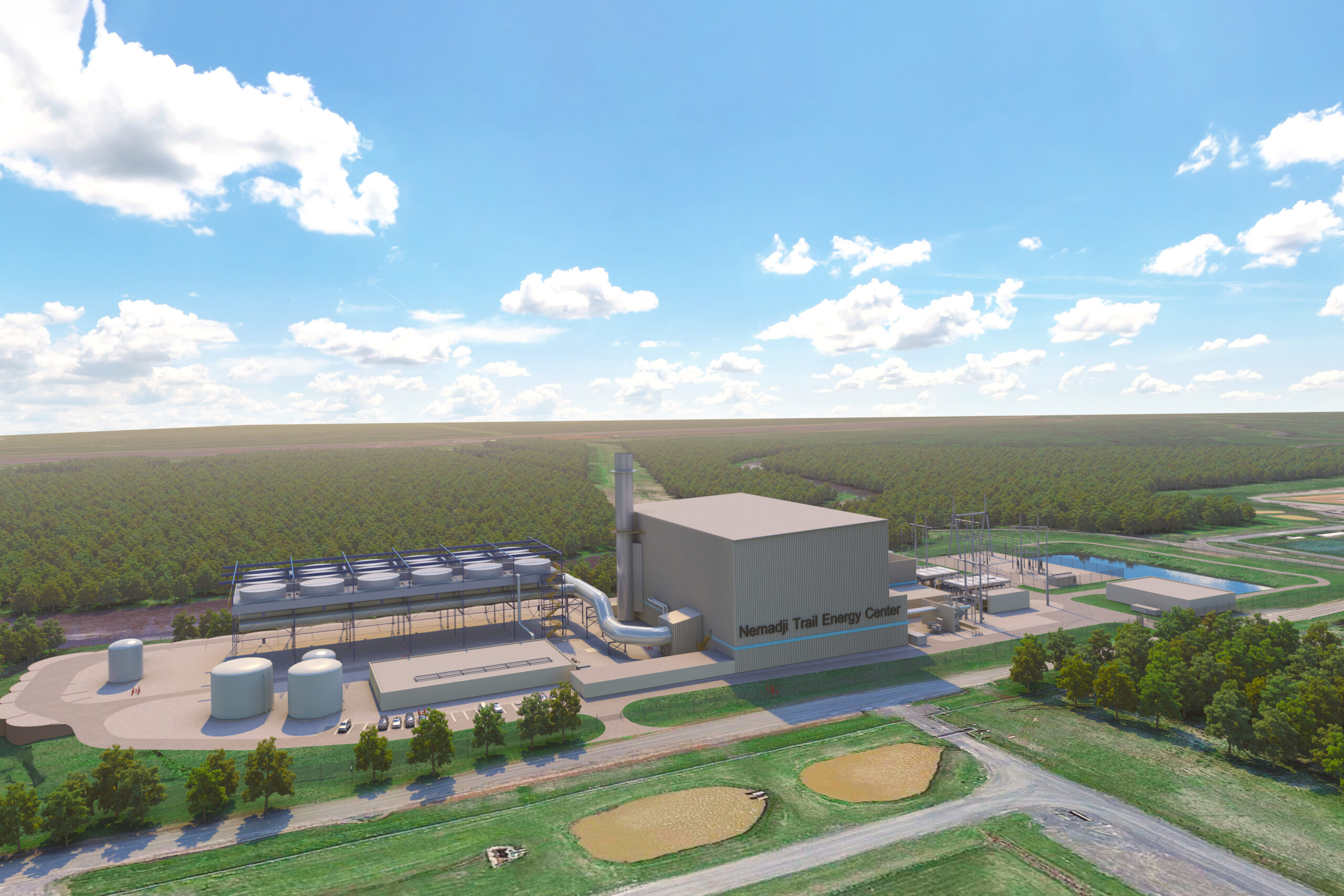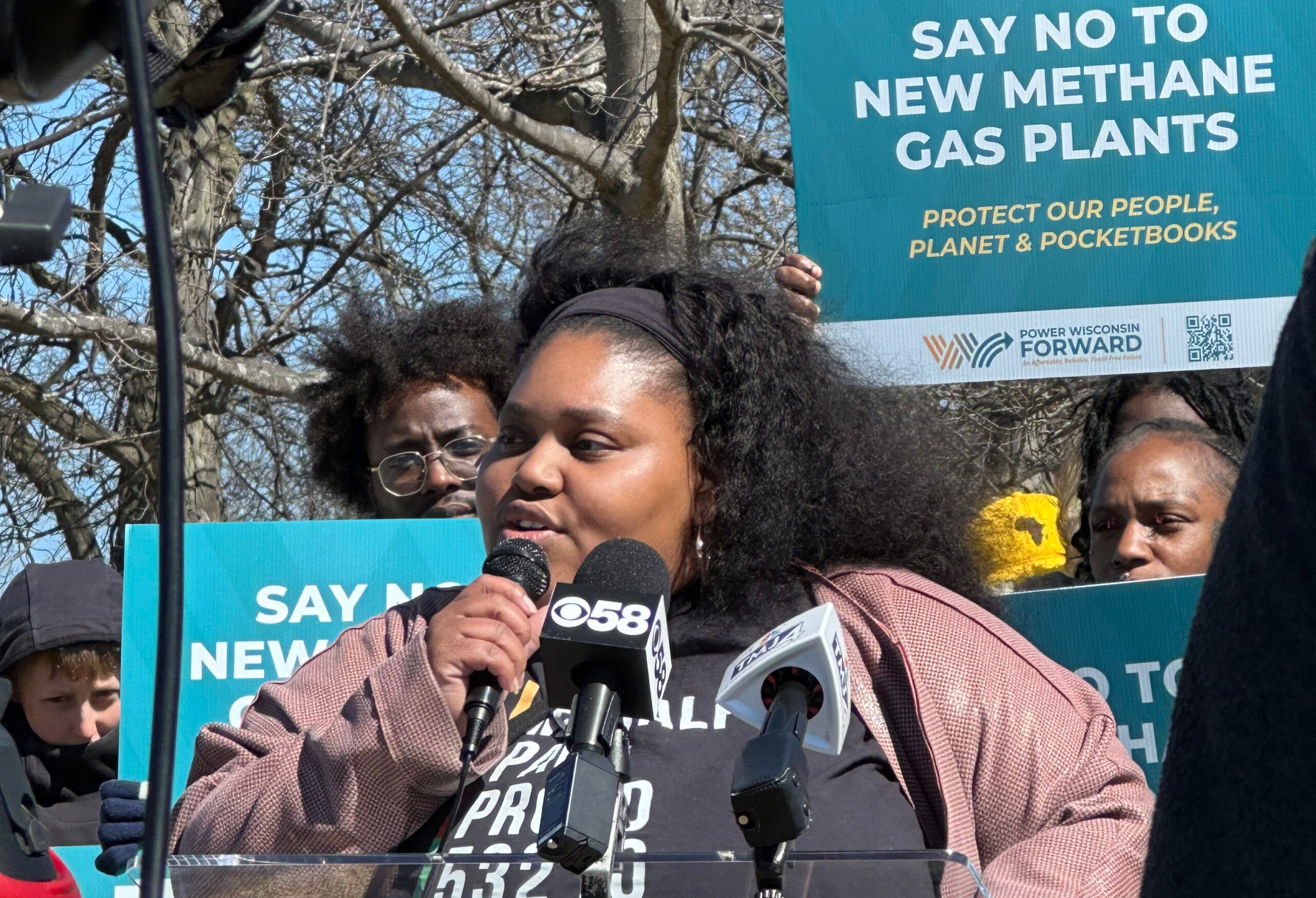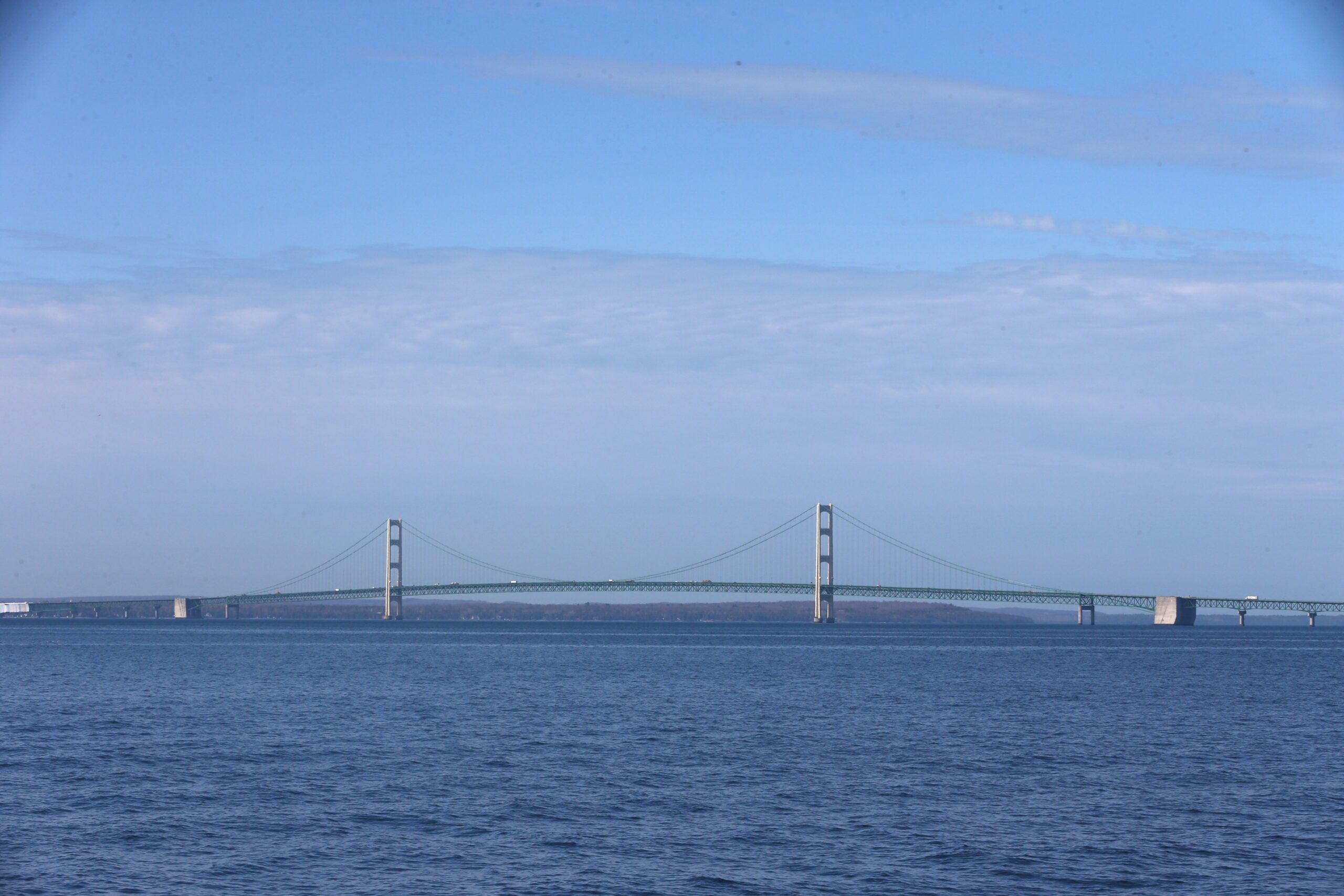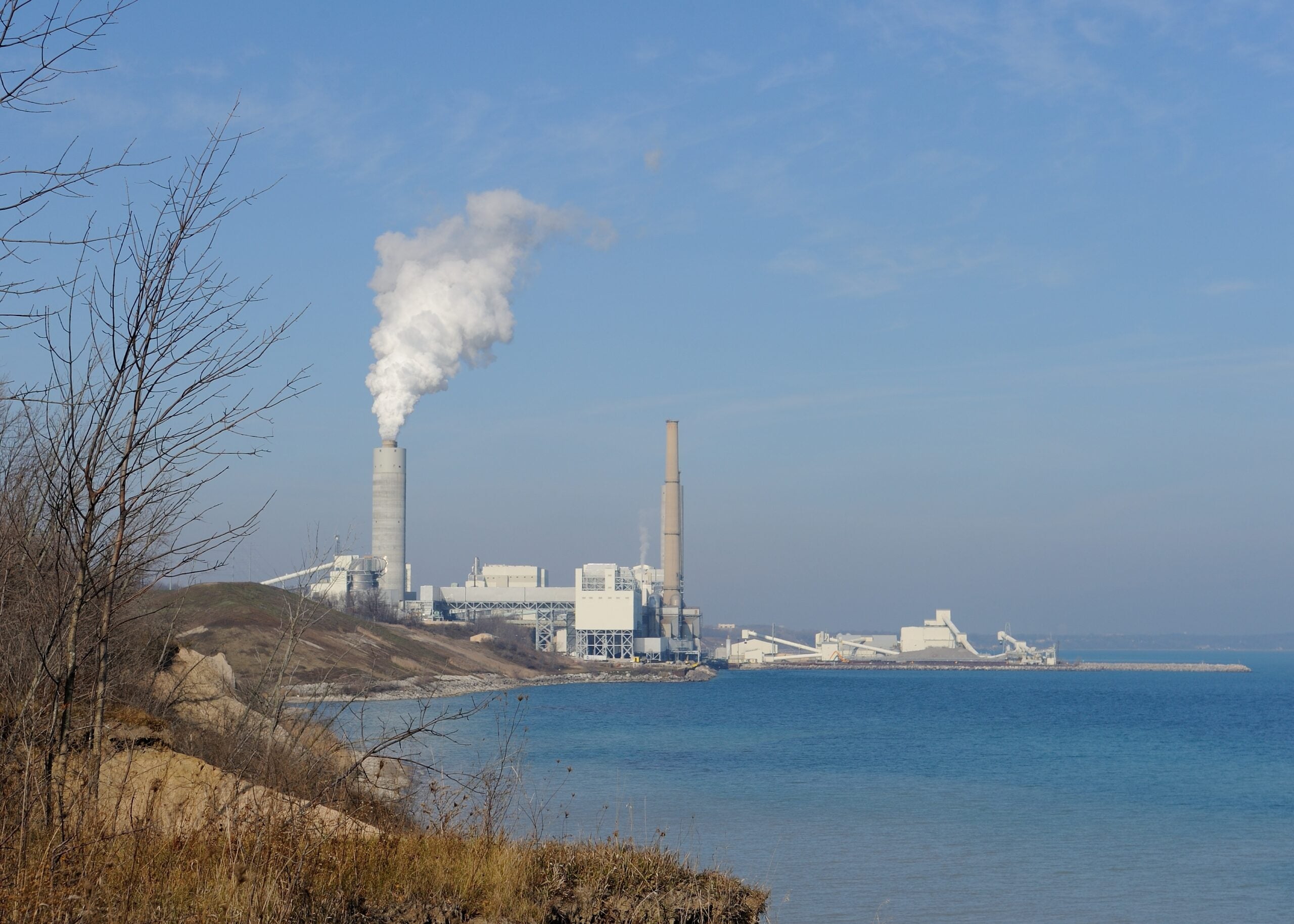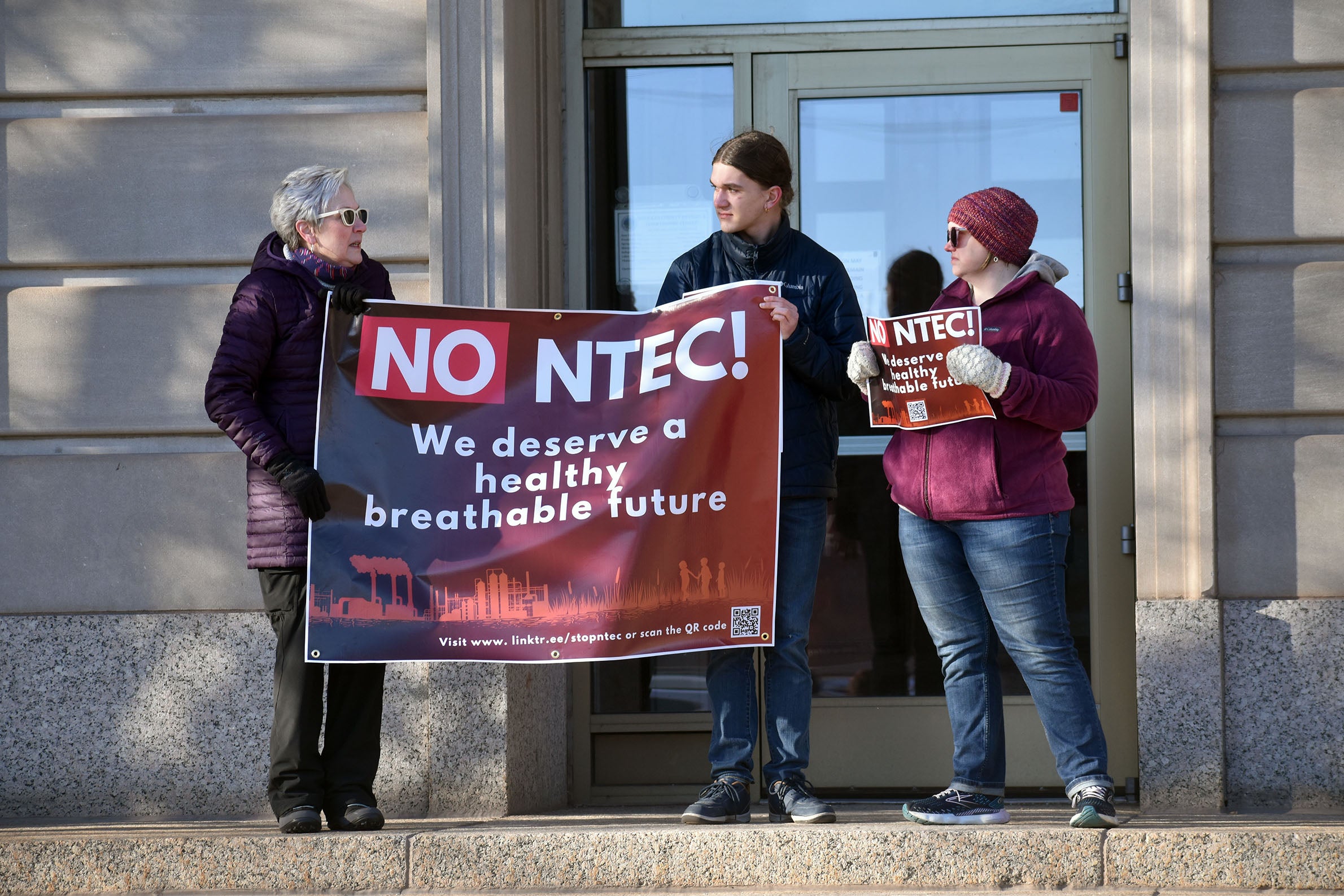The owners of a nearly $1 billion gas-fired power plant planned in Superior have withdrawn an air permit for the project as environmental advocates have been challenging its approval.
Several utilities want to build the 625-megawatt Nemadji Trail Energy Center, or NTEC, as part of plans to shift away from coal and invest in renewable energy. They include La Crosse-based Dairyland Power Cooperative, Minnesota Power in Duluth and Basin Electric Power Cooperative in North Dakota.
In a statement, the project’s partners said they’re asking the Wisconsin Department of Natural Resources to revoke the facility’s air permit because it’s taken longer than utilities anticipated to secure federal permits for the project.
Stay informed on the latest news
Sign up for WPR’s email newsletter.
“This is a timing issue. The window of time to construct and commission the facility allowed in the air permit is no longer achievable. Therefore, NTEC has requested the WDNR revoke the project’s air permit; the project partners will determine when to re-apply based on project planning and permitting,” utilities wrote.
Last year, Sierra Club Wisconsin challenged the permit issued by the DNR for a myriad of reasons. The group said it violated state law on Wisconsin environmental policy and relied on invalid rules when approving the permit. Sierra Club also said the agency failed to supplement its environmental review with new information related to developments in the cost and availability of alternatives like wind and solar projects paired with battery storage.
The environmental group also said the DNR set limits on emissions of several pollutants that were significantly higher than limits imposed on similar facilities, adding utilities provided information that understated whether emissions went beyond federal air quality standards.
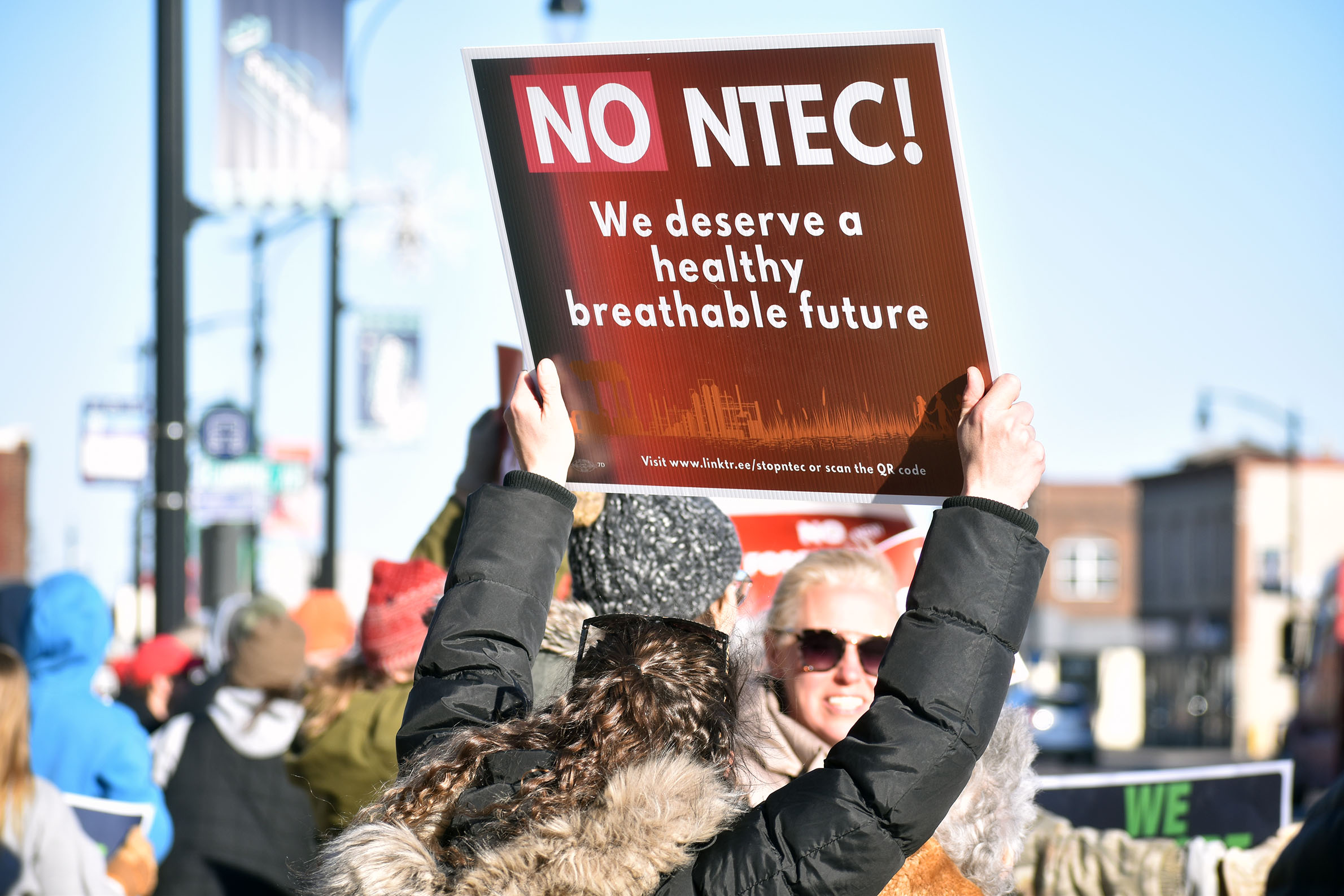
Jadine Sonoda, campaign coordinator for Sierra Club, said the group is concerned about the pollution, health and climate impacts of the plant.
“Those are the major concerns, especially in Superior,” Sonoda said. “There’s a lot of industry there. Adding to that with even more pollution, would cause exacerbated harm.”
A final environmental review found the project wouldn’t pose significant environmental harm. Even so, the plant is expected to produce 2.7 million tons each year in greenhouse gas emissions mostly from carbon dioxide, as well as methane and nitrous oxide. The findings from the federal Rural Utilities Service also state the plant would reduce emissions by about 800,000 tons each year by replacing coal plants elsewhere.
The plant’s supporters have touted hundreds of construction jobs that utilities claim would be created, including Kyle Bukovich, president of the Northern Wisconsin Building & Trades Council. He said he’s not surprised that utilities withdrew the permit.
“It just reaffirms the need to address permitting reform and just how long it takes, and try to tighten that up so projects aren’t held up like this for years,” Bukovich said.
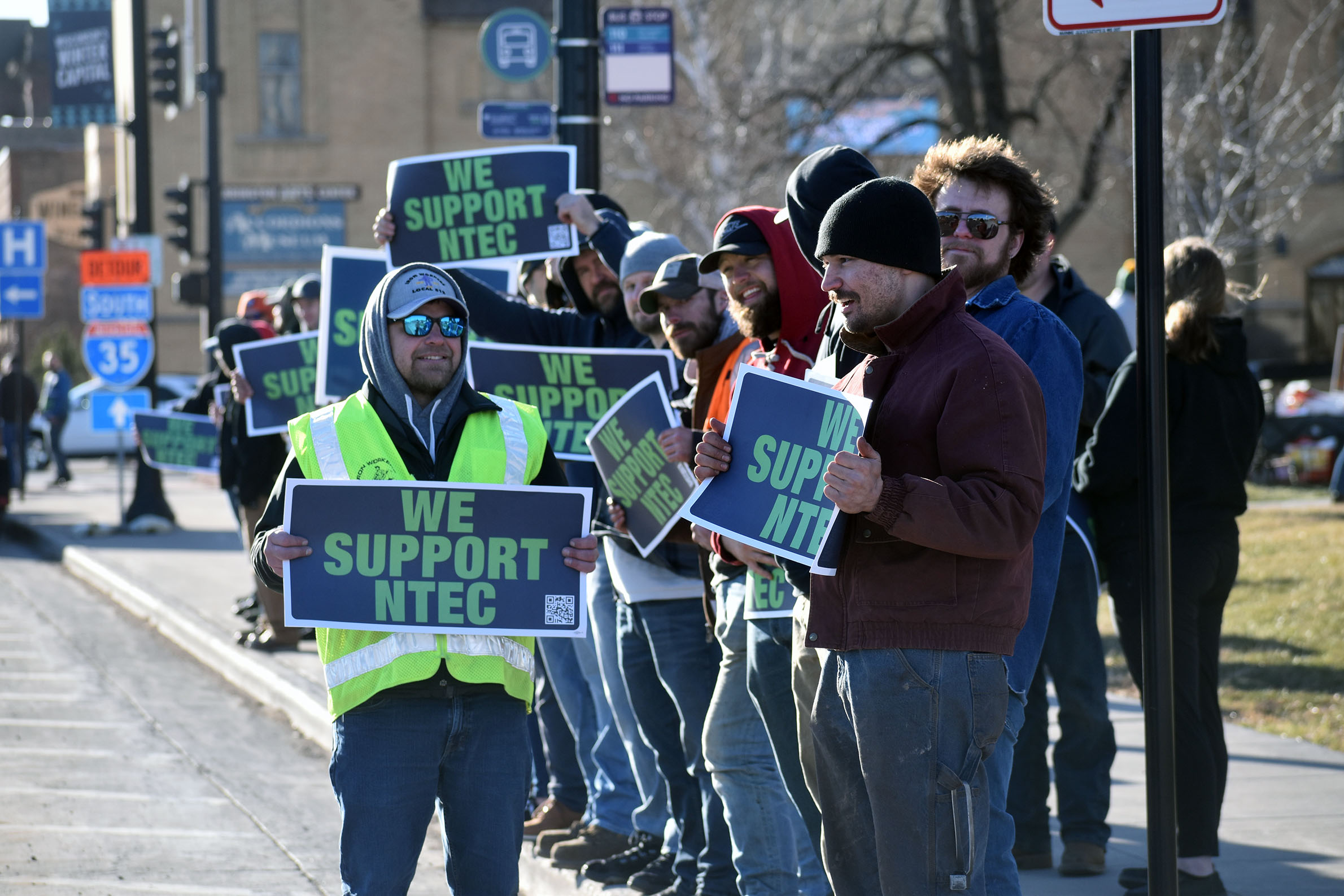
The project has also been delayed as it’s faced multiple legal challenges mounted by environmental and Indigenous groups.
Lake Superior tribes have raised concerns about its impacts to treaty rights and the project’s effects on a mass grave where around 200 ancestors of the Fond du Lac Band of Lake Superior Chippewa were buried at a nearby cemetery. Health professionals have also said the plant’s emissions could raise the risk of heart attacks and strokes from people living nearby.
Local leaders in Superior have also opposed the project, including Jenny Van Sickle, a member of the Superior City Council. She said the plant has no future and pointed to a report that shows Dairyland’s power supply is enough to meet demand without NTEC. Even so, she noted the Public Service Commission authorized construction of the project in 2020.
“As long as I think that is on the table, I will always be a little bit uneasy,” Van Sickle said.
The Sierra Club and Clean Wisconsin had challenged the commission’s decision, which was upheld by a Dane County judge. The groups appealed the ruling. On Tuesday, a state appeals court also upheld the commission’s approval of the project.
The groups had argued there wasn’t enough evidence for utility regulators to approve construction of NTEC based on concerns about its location along the Nemadji River, as well as wetlands that would be impacted and potential for flooding from extreme storms. An appeals panel disputed that, saying regulators followed the law.
Brett Korte, staff attorney with Clean Wisconsin, said they’re disappointed with the ruling and reviewing options. In the meantime, he said regulators should take another look at the project.
“There’s been a lot that’s happened, including Dairyland getting almost $600 million through the (Inflation Reduction Act) for clean energy,” Korte said. “The city of Superior has denied approvals that NTEC would need to build the project.”
A spokesperson for the commission declined to comment.
The plant’s owners say they’ve received 15 regulatory approvals for the project, saying they’ve worked closely with state and federal agencies to meet environmental standards. In a statement, the project’s partners said the recent ruling upholds the “reliability, environmental and economic attributes” of the proposed plant.
Wisconsin Public Radio, © Copyright 2025, Board of Regents of the University of Wisconsin System and Wisconsin Educational Communications Board.
